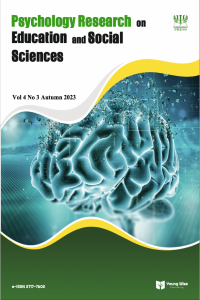Abstract
Feedback is an important part of the educational, teaching and learning process. Currently, in Learning Management Systems, instructors are endeavoring to engage, support, correct students, and promote higher-order thinking in their online classes. Feedback either via grades or comments regarding assignments, is one way to foster student learning. The problem is to ascertain what type or types of feedback are more useful and efficacious in this regard. Many students are eager to receive numerical feedback, some want writing feedback and still others want some validation as to their efforts. Ascertaining what type of feedback is most often used and what type of feedback is most important is imperative. This research will employ a questionnaire model using Qualtrics. Participants were college/university faculty. Qualtrics internal mechanisms were used to analyze the data. The data were analyzed both quantitatively and qualitatively and discussed. The results of this very preliminary exploratory study were reviewed. In this brief study, the authors examined the literature regarding feedback and how feedback is defined. The authors requested that faculty provide information on how substantial these various forms of feedback are and how often they utilize each. The results were reviewed and analyzed and some implications derived. Some recommendations for future study were examined and explored.
References
- Conrad, R.& Donaldson (2012). Continuing to engage the online learner. San Francisco, CA:Jossey Bass
- Gaudreau, C & Liu, W. (2016) https://elearningindustry.com/9-types-of-feedback-boost-student-engagement
- Getman, J. (2005, November). Assessing online learning: Review. Educause Quarterly, 71-72
- Hattie, J & Timperley, H. (2007) The power of feedback. Review of Educational Research, 77(1), 81-112. Doi: 10.3102/003465430298487
- Kahal, S. & Cooper,R.B, (2003) Explring the Core Concepts of Media Richness Theory: The Impact of Cue Multiplicity and Feedback Immediacy on Decision Quality. Journal of Management Information Systems, 20(1), 263-299.
- Li, J., Wong, S. C., Yang, X., & Bell, A. (2020). Using feedback to promote student participation in online learning programs: evidence from a quasi-experimental study. Educational Technology Research & Development, 68(1), 485–510. https://doi-org.glbvvproxy.enmu.edu/10.1007/s11423-019-09709-9
- Mehrabiam A., & Weiner, M. (1967) Decoding of inconsistent communications. Journal of Personality and Social Psychology, 6(1), 109-114. Doi 10.1037/h0024532
- Pan, X., & Shao, H. (2020). Teacher online feedback and learning motivation: learning engagement as a mediator. Social Behavior & Personality: An International Journal, 48(6), 1–10. https://doi-org.glbvvproxy.enmu.edu/10.2224/sbp.9118
- Rabidoux and Rottmann, A. (2017) How to provide meaningful feedback online https://www.insidehighered.com/digital-learning/views/2017/09/06/how-provide-meaningful-feedback-online-course
- Shaughnessy, M.F. (2022) Feedback: A Construct in search of contemporary investigation. Frontiers of Contemporary Education, 4(1), 1-5.
- Velez, J. (2008). Instructor communication behaviors and classroom climate: exploring relationships with students self-efficacy and task value motivation. Dissertation, The Ohio State University
- Woods, R.R. & Baker, J.D. (2004). Interaction and Immediacy in Online Learning. International Review of Research in Open and Distance Learning, 5(2), 1-11.
Abstract
References
- Conrad, R.& Donaldson (2012). Continuing to engage the online learner. San Francisco, CA:Jossey Bass
- Gaudreau, C & Liu, W. (2016) https://elearningindustry.com/9-types-of-feedback-boost-student-engagement
- Getman, J. (2005, November). Assessing online learning: Review. Educause Quarterly, 71-72
- Hattie, J & Timperley, H. (2007) The power of feedback. Review of Educational Research, 77(1), 81-112. Doi: 10.3102/003465430298487
- Kahal, S. & Cooper,R.B, (2003) Explring the Core Concepts of Media Richness Theory: The Impact of Cue Multiplicity and Feedback Immediacy on Decision Quality. Journal of Management Information Systems, 20(1), 263-299.
- Li, J., Wong, S. C., Yang, X., & Bell, A. (2020). Using feedback to promote student participation in online learning programs: evidence from a quasi-experimental study. Educational Technology Research & Development, 68(1), 485–510. https://doi-org.glbvvproxy.enmu.edu/10.1007/s11423-019-09709-9
- Mehrabiam A., & Weiner, M. (1967) Decoding of inconsistent communications. Journal of Personality and Social Psychology, 6(1), 109-114. Doi 10.1037/h0024532
- Pan, X., & Shao, H. (2020). Teacher online feedback and learning motivation: learning engagement as a mediator. Social Behavior & Personality: An International Journal, 48(6), 1–10. https://doi-org.glbvvproxy.enmu.edu/10.2224/sbp.9118
- Rabidoux and Rottmann, A. (2017) How to provide meaningful feedback online https://www.insidehighered.com/digital-learning/views/2017/09/06/how-provide-meaningful-feedback-online-course
- Shaughnessy, M.F. (2022) Feedback: A Construct in search of contemporary investigation. Frontiers of Contemporary Education, 4(1), 1-5.
- Velez, J. (2008). Instructor communication behaviors and classroom climate: exploring relationships with students self-efficacy and task value motivation. Dissertation, The Ohio State University
- Woods, R.R. & Baker, J.D. (2004). Interaction and Immediacy in Online Learning. International Review of Research in Open and Distance Learning, 5(2), 1-11.
Details
| Primary Language | English |
|---|---|
| Subjects | Educational Psychology |
| Journal Section | Educational Psychology |
| Authors | |
| Publication Date | October 3, 2023 |
| Published in Issue | Year 2023 Issue: 3 - September 2023 |


